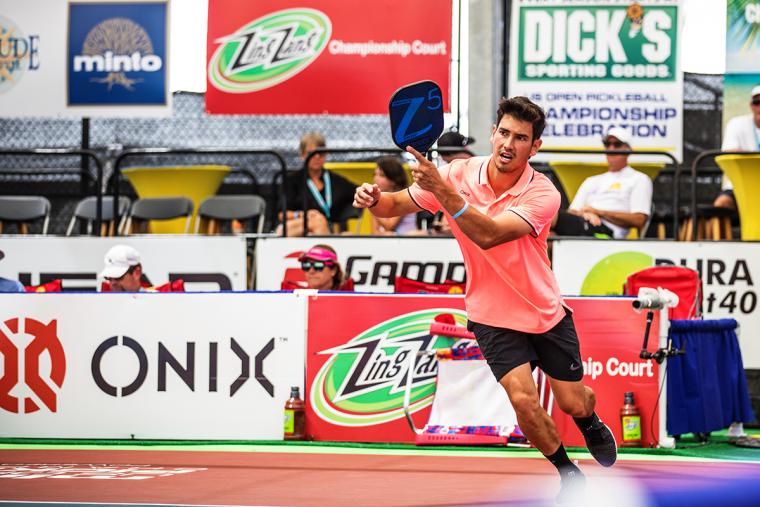

So if everyone wants to host them, it naturally means everyone wants to be one, right? So what does it take to be one of those events? Here are some tips from our side of the table. Not all of them may apply to every event, but there are probably some conclusions we can reach that everyone has.
Keep in Touch
When it comes to scheduling long-term events with your sports commission or CVB, good communication is the best practice. Let them know up front that you want to host the event there on a continuing basis. It makes your proposal that much more attractive.
Provide All Information
There’s no way to over-emphasize this. The more information you have about the event (its desired date, the type and number of athletes it brings in, the type and estimated of spectators or families you see, the venues you need and the amenities you want), the better it is for the destination, since it then provides a better picture of how it will mesh with our calendars. A really detailed RFP is critical to success.
Along with that information, we want history. Where has the event been and how has it performed in years past? Are there ‘up’ years and ‘down’ years? What are those due to? Where would we be in the cycle when you first bring that event to town? If this is an elimination tournament, how do the room nights look from first day to last? (Our hotels will want to know.)
Accurate, reliable information is key to our acceptance of an event. While we know events have the capability to grow, we hope that event owners and rights holders don’t exaggerate upon their expectations. Everyone wants to sell out in a new market, and everyone wants to put their best foot forward. Any reputable destination will check references so be honest and up-front in your expectations. Over-performing your estimates is far better than under-performing.

If the event does not have a long history, it can be a wise practice for both sides to have a one-year trial to be sure it is a good fit. Most cities and rights holders would like to have the event in town and see how it does – whether it is embraced by the community, how the athletes like the town, what the venues say about hosting and to see if the expectations on both sides are met, exceeded or need improvement. This way, the event owner doesn’t get locked into a contract he or she isn’t satisfied with, and the city doesn’t feel like it has committed to something that doesn’t fit. Bottom line: Don’t be offended if your chosen city makes this suggestion. After all, most long-term relationships start out with just one date and expand into something more. (Yes, there may be exceptions, such as Olympic trials and championship tournaments, but on the whole, most long-term contracts start at one year.)
…And be Flexible with Your Dates
Maybe the dates you have as a first choice aren’t available. If this is a market you really want as a host for your event, you’ll be even more appealing to the sports commission or CVB if you can move the event a few days to fit a period they have open in their calendars. Additionally, your ability to provide an economic benefit to the city during a ‘down’ time would be a great point in your favor when it comes to negotiating.
Want to Make Your Event Stay? Meet the Deadlines
In your first year, your host city will likely have a calendar for you. That will include deadlines for approving the contract with your venue, locking in hotel rates and dates and making any necessary arrangements for vendors – catering, awards, audio-visual and so forth. Can we be honest here? Everyone has had clients they have to send countless reminders to before they sign their contracts and finalize their arrangements. Don’t be that client! It doesn’t work in your favor when the city wants to have you back on a continuing basis.
Maybe that sounds exacting but it’s true. You wouldn’t want to commit to a city that refused to sign a contract with you until the very last minute. Every sports commission and CVB has a client that needs what they call ‘babysitting.’ You want to be the client who takes the initiative, since it makes your event more appealing.
It’s Not a Secret: Events Rotate Around the U.S.
Often, a multi-year contract doesn’t mean the event is held in the same place every single year. Many events rotate to various locations in order to satisfy the different groups that participate. For example, an event might be in Florida one year, Texas one year and Wisconsin another year, returning to a chosen city in those locations every three years.
This is not a surprise to us as a destination. We know that no matter where an event is planned, there will be complaints from the people who are located the greatest distance from the competition. As a result, the planner will look at an equitable rotation of locations. We look for events like that because we know people get sick of driving/flying long distances to participate in something. Again, just let the city know that when you’re negotiating a contact; they’ll want to know how often they’d be hosting the event and what years. You’re not going to be the only event doing this, so if we come into a number of multi-year events, and your calendar meshes with those, we’re delighted to have that mutual benefit.
For whatever reason, youth events seem to be the ones that rotate the most. That may be because there are so many parents we’re dealing with, but either way, it behooves us to pay attention to that scheduling. Maybe we can help by suggesting events parents and kids can do between games, or on their days off. As DMOs, we want to get the visitors out to experience the great things in our community; so providing suggestions for downtime is always met favorably by the kids and the parents. Let us know how we can help and we’re glad to do it.
What Are Your Specific Needs?
Say you’ve locked in with a city for the first year. Every event has its idiosyncrasies so make sure yours are communicated to the city. For example, one year, we had a softball tournament that wanted to practice on the diamonds before game time. They requested the field lights be turned on at 6 a.m. Make absolutely certain needs like these are communicated with your planner – and have a direct number you can call to reach a live person, if something doesn’t meet your expectations. The sports commission or CVB will be grateful for every way you give them to keep things running on schedule.
The Communication Should Not Stop After the Event is Over
The term “hotwash” means getting together after an event is over and hashing out all the good and bad things you’ve experienced. Yes, that means everything. We encourage our event owners, venue representatives and sports commission reps to sit down (even if it’s on a conference call) and to go over, in detail, all aspects of the tournament. What went wrong? What went wonderfully? What surprises did you encounter along the way (good or bad)? Everyone should have a chance to make their ideas known. Remember: nobody reads minds (no matter how talented we think we are) so it’s best if everyone has the chance to talk about what they think. That helps everyone decide how to do things better next time around (either in our location or in one on the next rotation).
If you don’t voice your happiness (or your dissatisfaction) with something, it’s likely nobody will know how to do it better – or whether to keep on doing it. Remember that communication goes both ways. If we say we really enjoyed one aspect of the event but found another to need improvement, you know it’s coming from a person who has your best interest at heart and who wants your continued good opinion. Isn’t that a reasonable request for both parties?
Once a Multi-Year Contract is Agreed Upon, Make the Most of It
That sounds obvious, but many people don’t take advantage of it. Sit down with your staff and ask this: What makes our event unique? What would people like to know about it? Chances are, you have some great things that people would like to try, so remember the old saying, “Imitation is the best form of flattery.”
Maybe you’re a Little League tournament and some sports writers would like to try pitching to some of your batters – or hitting against some of your pitchers. Give us a call and let us set up an opportunity for publicity! The more advance notice we have, the better off we are.
What else? Maybe you could invite local clubs to your practice events, or to a skill clinic. Perhaps the public could come take part in something like a gymnastic championship to see who can hold a handstand the longest. All of these are great opportunities to build community relations because they bring in local people. Don’t miss your chance to let the community embrace your tournament.
It’s Not Just YOUR Bottom Line You’re Boosting
Sometimes, when we consider economic impact, we only think of a few things: room nights, flights, bus transportation and so on. Help your sports commission or CVB out by letting them know who else in the city can stand to benefit from the tournament. For example, if you’re an enormous charity 5K, when will it be over and when can restaurants in the area expect a huge population of people who need brunch, lunch, dinner or happy hour? Your ideas for some tie-ins here would be useful, as would suggestions for promotions.
Vendors Like Dependability Too
If you’re going to be in town with your event, it’s not just hotels you’ll need (although heaven knows they’re critical to your success). It’s likely you’ll need other services as well. What are they? A photographer? Trophies? T-shirts? Fireworks? Music? A sports commission or CVB can help you find dependable vendors and set up contracts with them so that you don’t have to worry about who takes care of your needs from year to year. This brings more buy-in from your community when they see their bottom line impacted.
Volunteers: Your Lifeblood
This is a big one for us in Abilene, since our community embraces sports events and we love to be able to support the competitions that come to town. Give us enough notice and we can put the word out on the street that you are looking for people to help out. I imagine other cities feel the same. Remember that everyone needs advance notice, though; you’ll find plenty of volunteers in most cities if you give people time to clear their calendars.
We’re Waiting for You
Knowing what you know about your event and now, knowing what we’re looking for when it comes to multi-year events, it should be easier for you as an event owner or rights-holder to make a strong case for a multi-year contract and a recurring event in any given market. All destinations want them! Let’s work together and find the happy ending for all of us. SDM

